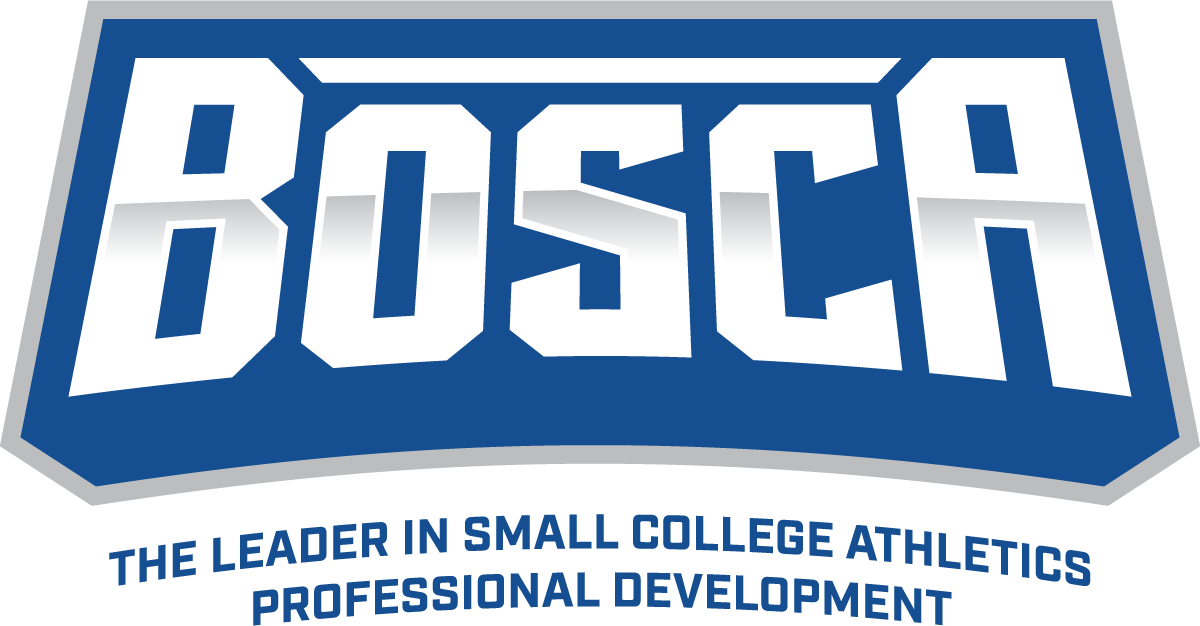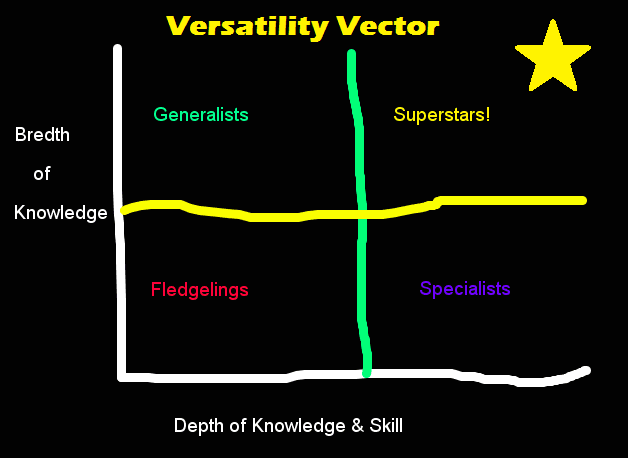WHAT ELSE CAN YOU DO?
At the recent Business of Small College Athletics (#BOSCA14) workshop much was made of the fact that administrators working in Small College Athletics need to be versatile. Very few of us just focus on one area within our department. Heck, even coaches wear multiple hats. When I interview prospective employees for my department (including coaches) I always ask the question “What else can you do?” Sometimes this question is met with a quizzical look but often prospects understand immediately that what I’m really asking them is “How else can you contribute to the success of our department?”
Being versatile is generally the result of two things: Experience and Attitude. Most skills can only be refined through practice and effort. That having been said, attitude is absolutely critical. Many necessary tasks in athletics are completely unglamorous. The best way to get the experience that increases your versatility is to approach every task as an opportunity to grow. Some will be more fun than others and some will more obviously affect the bottom line…but all are important. Here’s a look at some of the roles that I play in my department.
Problem Solver – I’ve discussed this at length in a previous blog, but one of my most important skills is solving problems. I’ll admit that I wasn’t very good at this when I started and have learned that only experience can help you here.
Capitalist Pig – I have often described myself in this way over the years. In truth, I am a Capitalist Pig out of necessity. We need resources to support our teams and I am the “Director of Sales” for our department. I spend a significant amount of time strategizing, cultivating, and selling in an effort to generate resources that improve our department. On one level or the other I expect every member of my staff to be a salesperson. I also think that if you can sell you will always find a job.
Coach – It took me some time to realize that I am the Coach of our coaches. Just as coaches work with student-athletes to improve their performance, I do the same with our coaches. My job is to clearly and consistently communicate the direction of our department and the expected role that each coach will play in meeting our goals. I meet regularly with the coaches on my staff and our meetings involve brainstorming, questioning current approaches, goal setting, encouraging, congratulating, and in some cases removing a coach from his/her position. Never has it involved running wind sprints!
Recruiter – I am frequently involved in our recruiting efforts on campus. I like to meet with prospective student-athletes and their parents to give them my view of our department and their specific sport. I also want to make sure that they know that part of what they get at Oklahoma City University is me. I also do a fair amount of recruiting to fill open positions in our department. We take application for every open position but I often activate my network to find other prospects that might be a good fit.
Stepfather – I often tell recruits that “I have two children….and 400 step-children.” I don’t have the daily interaction with our student-athletes that coaches have but I appreciate in my role that I can get to know our students and offer insight and wisdom that might impact their lives. Similarly, I appreciate having the opportunity with our staff to get to know them as more than just my employees. While there remains a “professional distance,” I enjoy having the opportunity to get to know my staff personally and provide advice where needed. They do the same for me.
Everything Else – This category is where attitude is so important. I know how to pop popcorn and change out a bag of nacho cheese. I have carried stray dogs off of our Soccer field. I’ve pulled tarps on the baseball field(not a skill per se). I know how to set up the sound system in the gym and set up the bleachers for a game. The fact is that I know how to do a lot of little un-glamorous things that are critical to the success of our athletic department. I’m a big believer in the idea that “I wouldn’t ask you to do anything that I wouldn’t do myself.” On one level it’s critical that necessary tasks get done to make sure that the games can be played. On another level it’s important that other employees understand that I’m willing to step in to do the little things and I expect them to do the same and have a great attitude about it.
We all tend to start at the bottom in the sports world. Enjoy the skills that you develop in the early stages of your career and commit to build on these skills and add others. The more that you can do well the more marketable you become and the more productive you are for your organization. Learning doesn’t stop when you graduate college and enter the working world…its only just begun! Make a plan today to build on your skillset and become more versatile. What else can you do?


